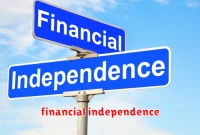Dreaming of early retirement? You’re not alone! More and more people are looking for ways to achieve financial independence and escape the traditional 9-to-5 grind. But how can you actually make this dream a reality? Planning for early retirement requires careful consideration and strategic steps. It’s not just about saving money; it’s about developing a comprehensive plan that aligns with your goals and financial situation.
This article will guide you through the essential elements of early retirement planning, from setting realistic goals and calculating your financial needs to investing wisely and managing your expenses. Whether you’re just starting your journey or already on your way, this comprehensive guide will provide valuable insights and actionable steps to help you reach financial freedom sooner than you thought possible.
Why Plan for Early Retirement?
Planning for early retirement is more than just a dream; it’s a strategic decision that empowers you to take control of your future and unlock a life of freedom and fulfillment. Here are compelling reasons why planning for early retirement should be a priority:
Financial Independence: Early retirement offers the ultimate financial freedom. By diligently saving and investing, you can break free from the shackles of the traditional work model and enjoy a life without financial constraints. You’ll have the flexibility to pursue your passions, travel the world, or simply savor more time with loved ones.
Improved Health and Well-being: Research suggests that early retirement can have a positive impact on both physical and mental well-being. With more time for rest, relaxation, and engaging in activities you enjoy, you can reduce stress levels, improve sleep quality, and enhance your overall health.
Time for Personal Growth: Early retirement allows you to rediscover yourself and explore new avenues of personal growth. You might pursue long-forgotten hobbies, delve into lifelong learning opportunities, or volunteer your time to make a difference in the world.
Leaving a Legacy: By achieving early retirement, you create a powerful legacy for your family. Your financial independence can provide a safety net for your loved ones and offer them the freedom to pursue their own dreams without the burden of financial worries.
Early retirement is a life-changing decision that requires careful planning and commitment. By taking proactive steps now, you can lay the foundation for a fulfilling and financially independent future.
The Financial Independence, Retire Early (FIRE) Movement
The Financial Independence, Retire Early (FIRE) movement is a philosophy and lifestyle that emphasizes achieving financial independence as early as possible to enable early retirement. FIRE enthusiasts focus on minimizing expenses, maximizing savings, and investing strategically to reach their financial goals. The movement gained traction in recent years, particularly among younger generations seeking alternative pathways to traditional retirement models.
The core principles of the FIRE movement revolve around building a substantial investment portfolio that generates passive income sufficient to cover living expenses without relying on employment. This typically involves a high savings rate, often exceeding 50% of income, aggressive investing, and meticulous budgeting.
FIRE advocates often employ strategies like:
- Living below your means: Reducing unnecessary expenses and adopting a minimalist lifestyle.
- High-income careers: Pursuing occupations with high earning potential to accelerate savings.
- Investing in index funds and real estate: Building a diversified investment portfolio with the potential for long-term growth.
- Side hustles and passive income streams: Generating additional income beyond primary employment.
While the FIRE movement offers a compelling path to early retirement, it’s crucial to acknowledge its challenges. Achieving financial independence requires significant discipline, dedication, and often involves lifestyle changes. Additionally, market volatility and unforeseen expenses can impact investment returns and timeline projections. It’s essential to approach FIRE with a realistic outlook, considering individual circumstances, risk tolerance, and financial goals.
How to Save Aggressively for Early Retirement
Retiring early is a dream for many, but it requires a strategic and aggressive approach to saving. Reaching financial independence sooner than expected necessitates a commitment to maximizing your savings and minimizing your expenses. To achieve this ambitious goal, you need to prioritize saving and develop a disciplined approach to your finances.
A crucial step is to increase your savings rate. Aim to save as much as possible, ideally 50% or more of your income, to accelerate your journey to early retirement. This might seem daunting, but by reducing unnecessary expenses and finding ways to increase income, you can achieve this ambitious target. Explore side hustles, negotiate salary increases, and carefully analyze your spending habits to identify areas for improvement.
Another effective strategy is to invest your savings wisely. Investing in a diversified portfolio of stocks, bonds, and real estate can help your money grow at a faster pace. Remember, the earlier you start investing, the more time your money has to compound, leading to substantial gains over the long term. Consult with a financial advisor to develop a personalized investment plan that aligns with your goals and risk tolerance.
Beyond traditional savings and investments, consider alternative investment avenues like real estate crowdfunding or peer-to-peer lending. These options can offer higher returns but may also carry greater risks. Conduct thorough research and understand the intricacies of such investments before committing your funds.
Saving aggressively for early retirement demands significant commitment and discipline. By adhering to a strict budget, minimizing debt, and embracing a frugal lifestyle, you can create a solid financial foundation for your early retirement aspirations. Remember, the earlier you begin, the greater your chances of achieving your dream of retiring early.
The Role of Investment in Early Retirement Planning
Investing is a crucial component of achieving early retirement. It allows you to grow your wealth over time, so you can eventually rely on your investments as a source of income. It’s the cornerstone of building financial independence and achieving your retirement goals earlier.
The earlier you begin investing, the more time your money has to compound. Compound interest is the interest earned on both the principal amount and accumulated interest, leading to exponential growth over time. This effect is more pronounced over longer periods, making it even more beneficial for early retirement planning.
While investing carries risks, the potential for growth outweighs the potential losses for long-term investors. It’s crucial to diversify your portfolio across different asset classes like stocks, bonds, and real estate. This helps manage risk and potentially achieve higher returns. By carefully planning and managing your investments, you can build a strong financial foundation that will support your early retirement.
Tips for Reducing Living Expenses
Reducing your living expenses is crucial for achieving early retirement and financial independence. By cutting back on unnecessary spending, you can free up more money to invest, save, or use for other purposes. Here are some practical tips to help you reduce your living expenses:
Track Your Spending: The first step is to understand where your money is going. Use a budgeting app, spreadsheet, or notebook to track your income and expenses for a month or two. Analyze your spending habits and identify areas where you can cut back.
Negotiate Bills: Don’t be afraid to negotiate with your service providers, such as your internet, cable, and phone companies. Often, they are willing to offer discounts or better deals to retain customers. You can also consider switching to cheaper providers if necessary.
Reduce Food Expenses: Food is a major expense for many households. You can save money by eating out less frequently, cooking at home more often, and planning your meals in advance. Consider buying groceries in bulk and using coupons or discount apps to save on your purchases.
Cut Down on Entertainment: While entertainment is important, it can be a significant drain on your budget. Limit your spending on movies, concerts, and other activities. Explore free or low-cost alternatives, such as going for walks in nature, attending local events, or borrowing books from the library.
Shop Smart: Be a savvy shopper and take advantage of sales, coupons, and discounts. Compare prices between different stores and buy generic brands whenever possible. Avoid impulse purchases and make sure you really need something before you buy it.
Declutter and Sell: Get rid of unwanted items in your home. Sell them online or at a consignment store to earn extra cash. You can also rent out unused space in your home, such as a spare room, to generate additional income.
Embrace a Minimalist Lifestyle: Consider adopting a minimalist lifestyle, which emphasizes simplicity and owning less. This can help you reduce your spending on unnecessary items and free up your time and energy for more important things.
Reduce Transportation Costs: Evaluate your transportation needs and consider carpooling, biking, walking, or taking public transportation to reduce your fuel costs and car maintenance expenses. You might even consider selling your car and using ride-sharing services as an alternative.
Seek Out Free Resources: Take advantage of free resources available in your community, such as public libraries, parks, and community centers. Explore free online learning platforms and resources to expand your knowledge and skills.
Rethink Your Housing Costs: Consider downsizing your living space, moving to a more affordable area, or renting out a room to a roommate. These strategies can significantly reduce your housing expenses.
Automate Your Savings: Set up automatic transfers from your checking account to your savings account each month. This will ensure that you save consistently and don’t have to think about it every time.
Be Patient and Persistent: Reducing your living expenses takes time and effort. Be patient with yourself and don’t get discouraged if you don’t see results immediately. Consistency and persistence will pay off in the long run.
How to Create a Retirement Budget
Retirement is a time to relax and enjoy life, but it’s important to be financially prepared. Creating a retirement budget is crucial for ensuring you can afford the lifestyle you desire. Here’s how to create a budget that will help you achieve financial independence sooner:
1. Determine Your Retirement Expenses: Start by estimating your monthly expenses in retirement. Consider housing, food, healthcare, transportation, entertainment, and travel. Be realistic and factor in potential inflation.
2. Estimate Your Retirement Income: Calculate your expected income sources, such as Social Security, pensions, and savings. Consult with a financial advisor to determine your potential income streams.
3. Identify Any Gaps: Compare your estimated retirement expenses with your projected income. If there’s a gap, you need to adjust your spending habits, increase your savings, or explore alternative income sources.
4. Prioritize Your Spending: Once you’ve identified any gaps, prioritize your essential expenses and look for areas where you can cut back. Consider reducing your housing costs, eating out less frequently, or finding alternative transportation options.
5. Review and Adjust Your Budget Regularly: Your retirement budget is not set in stone. It’s essential to review your expenses and income regularly to ensure it still aligns with your financial goals. Adjust your budget as needed to reflect changes in your spending habits or income streams.
The Impact of Healthcare Costs on Early Retirement
Planning for early retirement is a significant milestone, but it’s crucial to consider the impact of healthcare costs. As individuals age, their healthcare expenses tend to rise, potentially jeopardizing retirement savings. Healthcare costs can be a substantial obstacle to achieving financial independence sooner, and it’s essential to factor them into your retirement plan.
The rising cost of healthcare is a major concern for retirees. As individuals age, they are more susceptible to chronic illnesses and require more frequent medical attention. This increased healthcare utilization can lead to higher out-of-pocket expenses, including premiums, deductibles, copayments, and prescription drugs. For those seeking to retire early, the impact of these costs can be even more substantial, as they will have a longer period of retirement during which they will need to cover their healthcare needs.
To mitigate the potential impact of healthcare costs on early retirement, consider exploring various strategies. One option is to invest in a high-deductible health plan (HDHP) coupled with a health savings account (HSA). These plans often have lower monthly premiums but require higher out-of-pocket payments for healthcare services. HSAs offer tax advantages for saving for healthcare expenses and can help individuals accumulate funds for future medical needs.
Another approach is to carefully assess the healthcare coverage offered through Medicare, which becomes available at age 65. Understanding the intricacies of Medicare plans, including the different parts and their associated costs, can be beneficial in finding the most suitable coverage for your needs. Additionally, exploring supplemental insurance options, such as Medigap or Medicare Advantage plans, can further enhance your healthcare coverage in retirement.
In conclusion, while early retirement can be a rewarding goal, it’s essential to acknowledge the significant role that healthcare costs can play. By factoring healthcare expenses into your financial planning and considering strategies to mitigate their impact, you can increase your chances of achieving financial independence and enjoying a comfortable and secure retirement.
Common Mistakes to Avoid in Early Retirement Planning
Retiring early is a dream for many, but it requires careful planning and preparation. Many people make mistakes that can jeopardize their financial security in retirement. Here are some common mistakes to avoid:
Underestimating expenses: One common mistake is underestimating the cost of living in retirement. People often forget about healthcare, travel, and unexpected expenses. It’s crucial to create a realistic budget that accounts for all potential expenses.
Overestimating investment returns: Another common mistake is assuming unrealistic investment returns. It’s important to plan for a conservative rate of return that aligns with market trends and your risk tolerance.
Not accounting for inflation: Inflation can significantly erode the purchasing power of your savings over time. Consider inflation when calculating your expenses and investment goals.
Ignoring healthcare costs: Healthcare expenses can be significant in retirement, especially if you have chronic health conditions. Make sure to factor in the cost of health insurance, medication, and potential long-term care.
Failing to plan for unexpected events: Life is unpredictable, and unexpected events can derail your retirement plans. Consider creating an emergency fund to cover unexpected expenses, such as job loss or home repairs.
Not seeking professional advice: A financial advisor can help you create a comprehensive retirement plan tailored to your individual circumstances. They can provide guidance on investments, taxes, and other important considerations.
By avoiding these common mistakes, you can increase your chances of achieving a comfortable and secure early retirement. Remember to plan carefully, be realistic, and seek professional advice when needed.
How to Stay Engaged After Early Retirement
Retirement, especially early retirement, can be a big life change. While many people dream of the freedom and flexibility that comes with it, they also worry about how they’ll stay engaged and fulfilled. It’s important to remember that retirement is not the end of your journey, but a new beginning. You have the opportunity to explore new interests, give back to your community, and continue learning and growing. Here are some tips on how to stay engaged after early retirement:
1. Pursue Your Passions: Retirement is the perfect time to pursue hobbies, activities, or learning opportunities that you’ve always wanted to. Whether it’s taking up a new sport, learning a new language, or volunteering for a cause you care about, pursuing your passions can bring a sense of purpose and fulfillment.
2. Stay Active: Physical activity is essential for maintaining both physical and mental health. Join a gym, take up a dance class, go for walks or hikes, or participate in team sports. Staying active can help you stay connected with others and feel energized.
3. Build a Strong Social Network: Social connection is vital for well-being. Spend time with friends and family, join clubs or groups, volunteer, or take classes. Maintaining a strong social network will help you stay engaged and prevent feelings of isolation.
4. Give Back to Your Community: Volunteering is a great way to make a difference in the lives of others and find a sense of purpose. Look for opportunities that align with your interests and skills. Volunteering can be a rewarding experience and help you stay connected to your community.
5. Embrace Continuous Learning: Retirement doesn’t mean the end of learning. Take online courses, attend workshops, read books, or join a book club. Learning new things can keep your mind sharp and challenge you to grow.
Retirement can be a time of great freedom and opportunity. By actively engaging in activities that bring you joy, staying connected to others, and embracing lifelong learning, you can ensure that retirement is a fulfilling and rewarding chapter in your life.
The Future of the Early Retirement Movement
The early retirement movement, driven by the desire for financial independence and a life free from the constraints of traditional work, has gained significant momentum in recent years. While the concept of retiring early is not new, the accessibility of information, resources, and community online has propelled its popularity, attracting individuals from all walks of life.
The future of the early retirement movement is promising, driven by several key factors:
- Increased awareness and accessibility: The rise of online communities, podcasts, and blogs dedicated to financial independence has made the concept of early retirement more accessible than ever before.
- Technological advancements: Technological advancements have significantly impacted the way people work, creating opportunities for remote work, freelance gigs, and passive income streams, all of which can contribute to achieving financial independence.
- Shifting societal values: The traditional notion of working until retirement age is being challenged, with younger generations placing a higher value on work-life balance and pursuing passions outside of traditional careers.
However, the early retirement movement also faces challenges:
- Rising cost of living: Inflation and the increasing cost of living make it more challenging to save enough for early retirement.
- Market volatility: Investments can fluctuate, creating uncertainty and potentially jeopardizing retirement plans.
- Lack of access to resources: Not everyone has access to the same resources and opportunities, making early retirement more accessible to some than others.
Despite these challenges, the future of the early retirement movement remains bright. As the movement continues to evolve and adapt, it has the potential to transform the way individuals approach work, finances, and their overall life journey. By embracing financial literacy, exploring diverse income streams, and prioritizing personal well-being, individuals can pave their way to a more fulfilling and fulfilling retirement, regardless of age.




